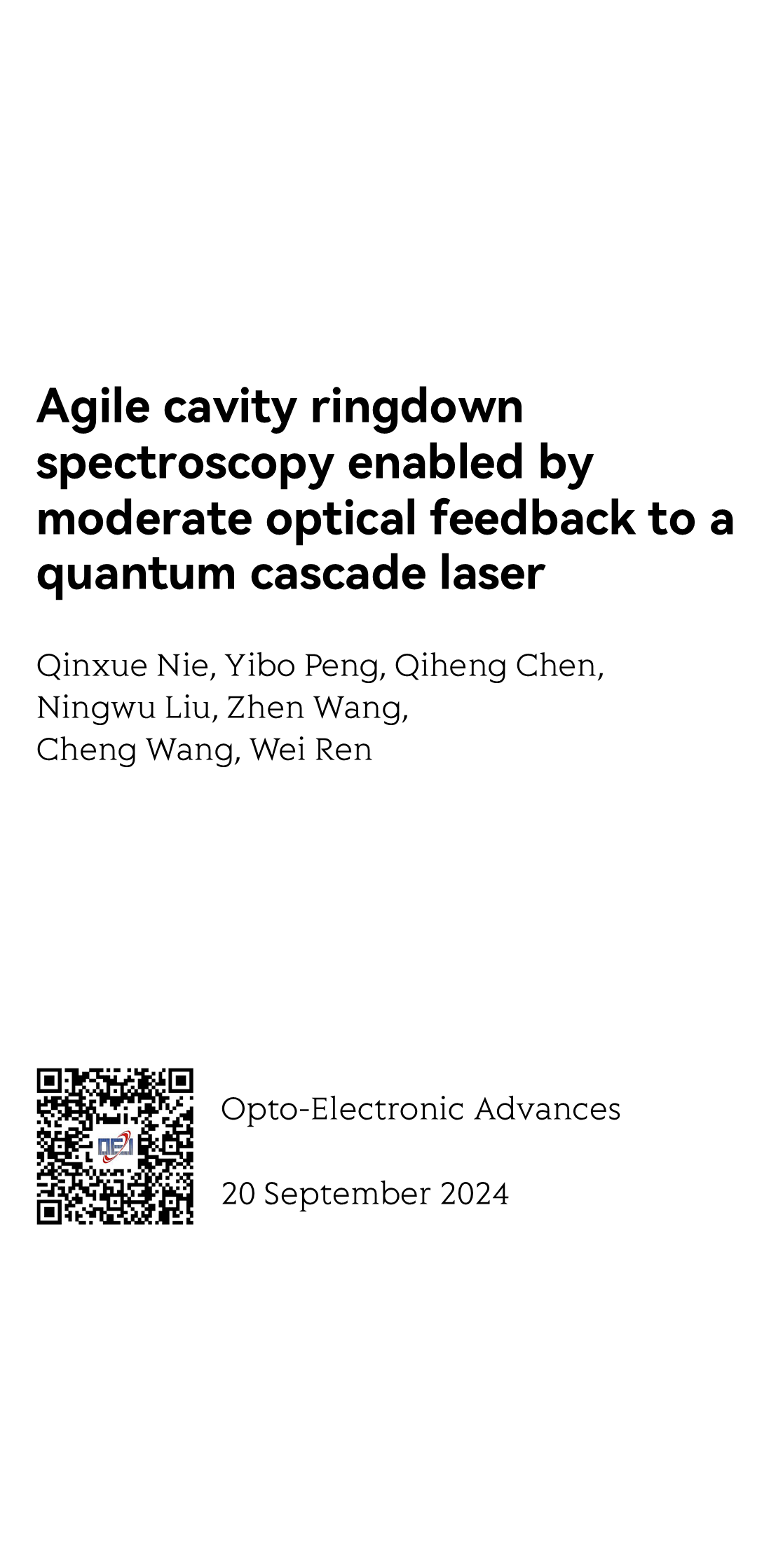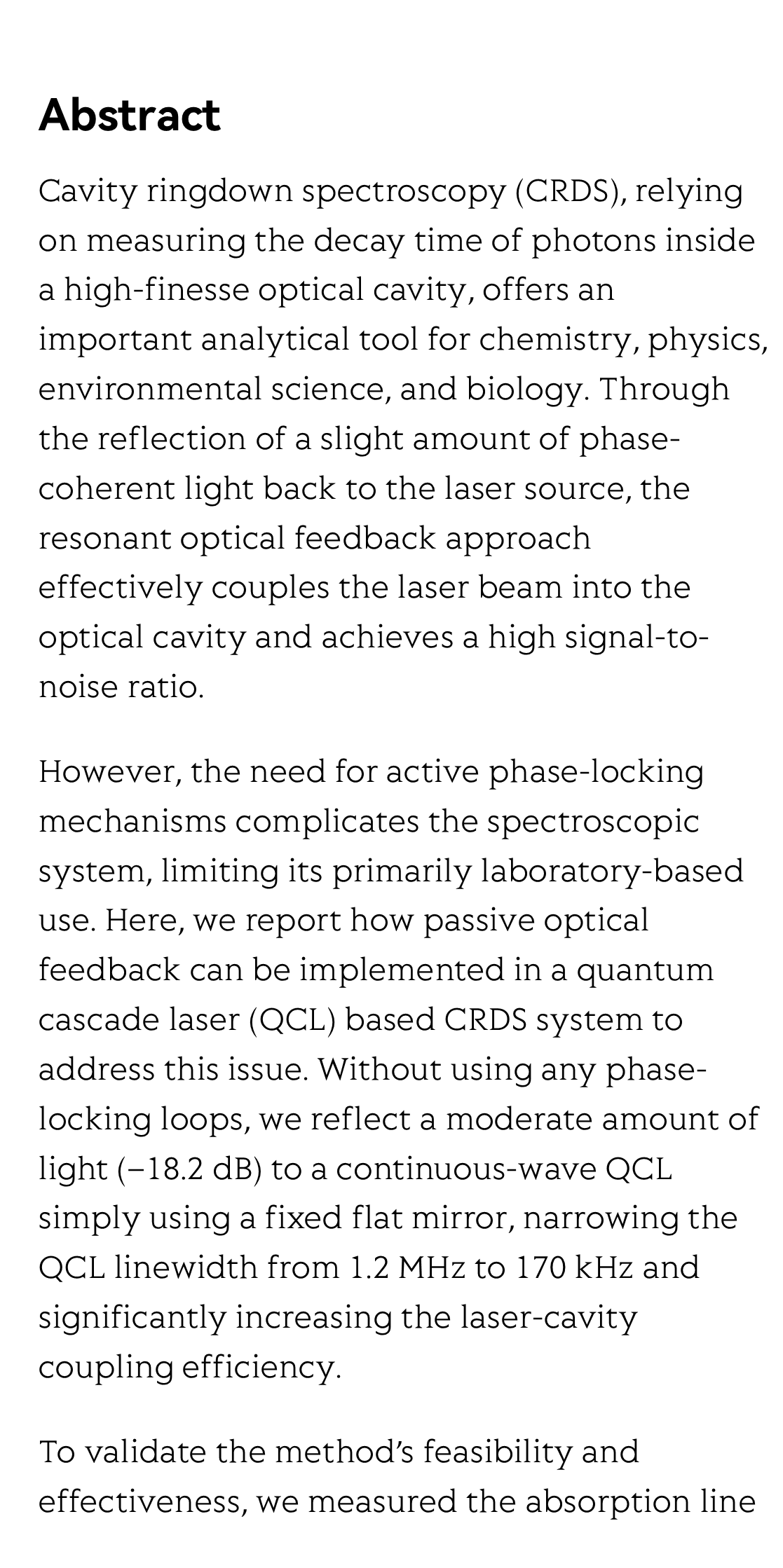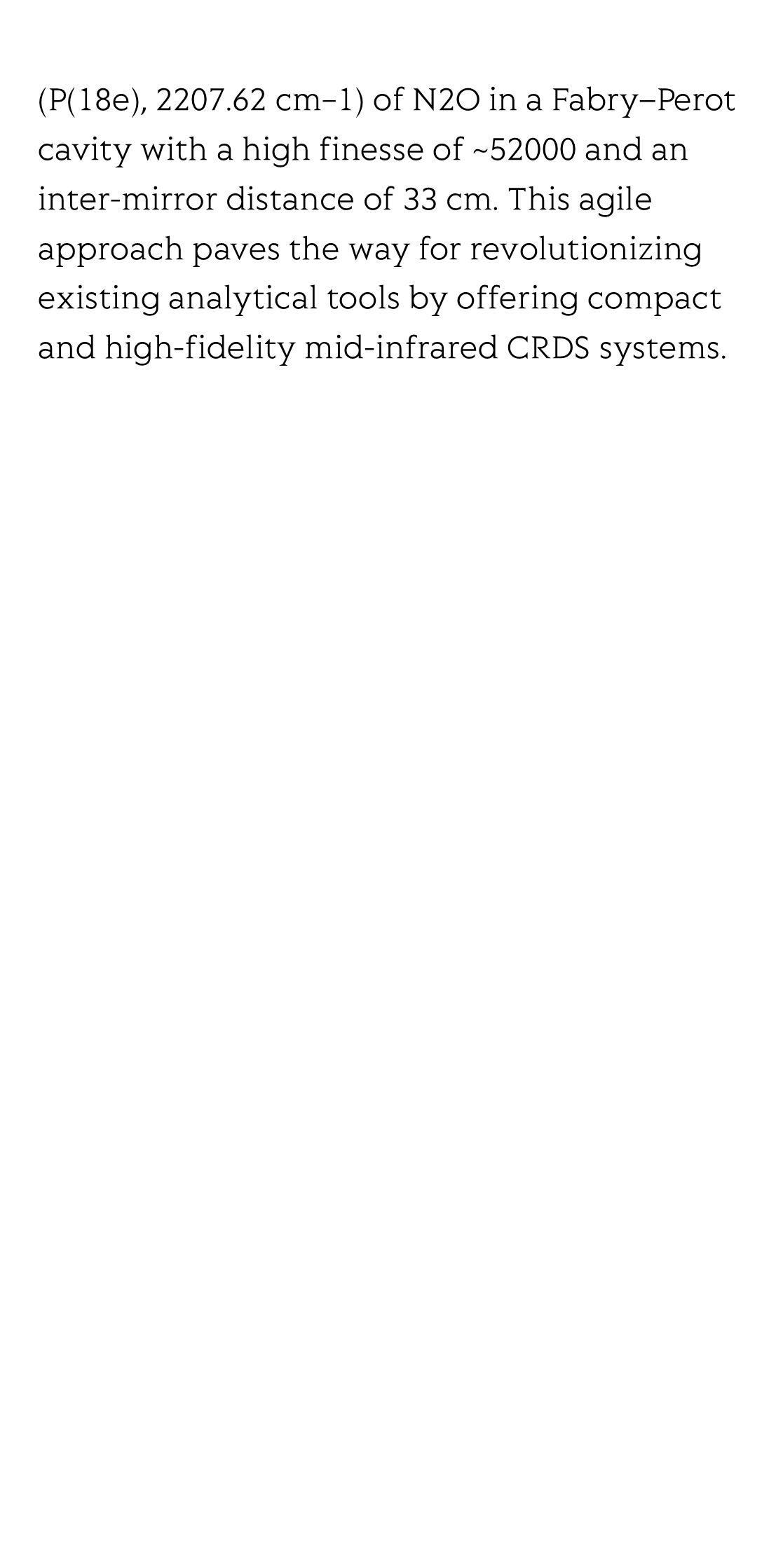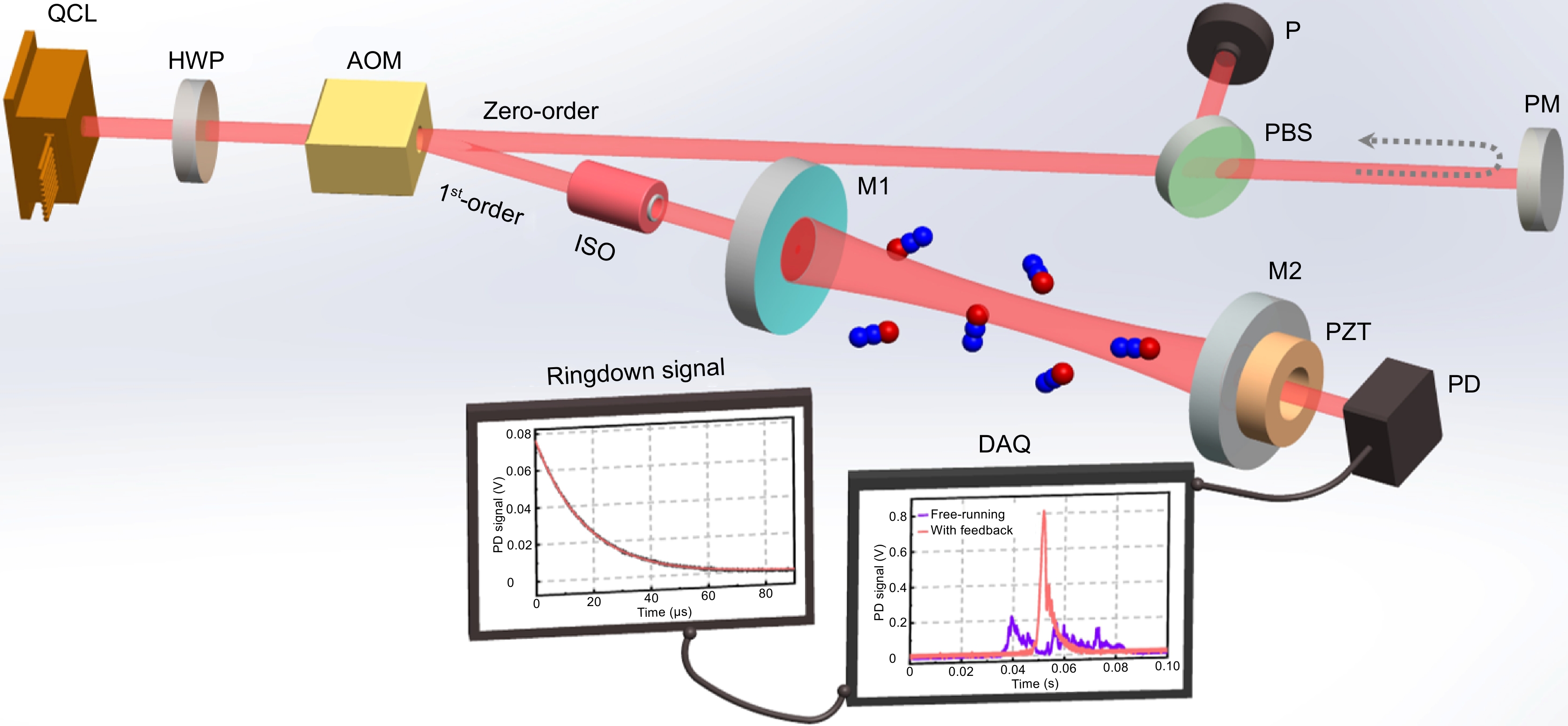(Peer-Reviewed) Agile cavity ringdown spectroscopy enabled by moderate optical feedback to a quantum cascade laser
Qinxue Nie ¹, Yibo Peng ², Qiheng Chen ¹, Ningwu Liu ¹, Zhen Wang ¹, Cheng Wang 王成 ², Wei Ren 任伟 ¹
¹ Department of Mechanical and Automation Engineering, The Chinese University of Hong Kong, Hong Kong SAR 999077, China
中国 香港 香港中文大学 机械与自动化工程学
² School of Information Science and Technology, ShanghaiTech University, Shanghai 201210, China
中国 上海 上海科技大学 信息科学与技术学院
Opto-Electronic Advances, 2024-09-20
Abstract
Cavity ringdown spectroscopy (CRDS), relying on measuring the decay time of photons inside a high-finesse optical cavity, offers an important analytical tool for chemistry, physics, environmental science, and biology. Through the reflection of a slight amount of phase-coherent light back to the laser source, the resonant optical feedback approach effectively couples the laser beam into the optical cavity and achieves a high signal-to-noise ratio.
However, the need for active phase-locking mechanisms complicates the spectroscopic system, limiting its primarily laboratory-based use. Here, we report how passive optical feedback can be implemented in a quantum cascade laser (QCL) based CRDS system to address this issue. Without using any phase-locking loops, we reflect a moderate amount of light (–18.2 dB) to a continuous-wave QCL simply using a fixed flat mirror, narrowing the QCL linewidth from 1.2 MHz to 170 kHz and significantly increasing the laser-cavity coupling efficiency.
To validate the method’s feasibility and effectiveness, we measured the absorption line (P(18e), 2207.62 cm−1) of N2O in a Fabry–Perot cavity with a high finesse of ~52000 and an inter-mirror distance of 33 cm. This agile approach paves the way for revolutionizing existing analytical tools by offering compact and high-fidelity mid-infrared CRDS systems.
Separation and identification of mixed signal for distributed acoustic sensor using deep learning
Huaxin Gu, Jingming Zhang, Xingwei Chen, Feihong Yu, Deyu Xu, Shuaiqi Liu, Weihao Lin, Xiaobing Shi, Zixing Huang, Xiongji Yang, Qingchang Hu, Liyang Shao
Opto-Electronic Advances
2025-11-25
A review on optical torques: from engineered light fields to objects
Tao He, Jingyao Zhang, Din Ping Tsai, Junxiao Zhou, Haiyang Huang, Weicheng Yi, Zeyong Wei Yan Zu, Qinghua Song, Zhanshan Wang, Cheng-Wei Qiu, Yuzhi Shi, Xinbin Cheng
Opto-Electronic Science
2025-11-25







